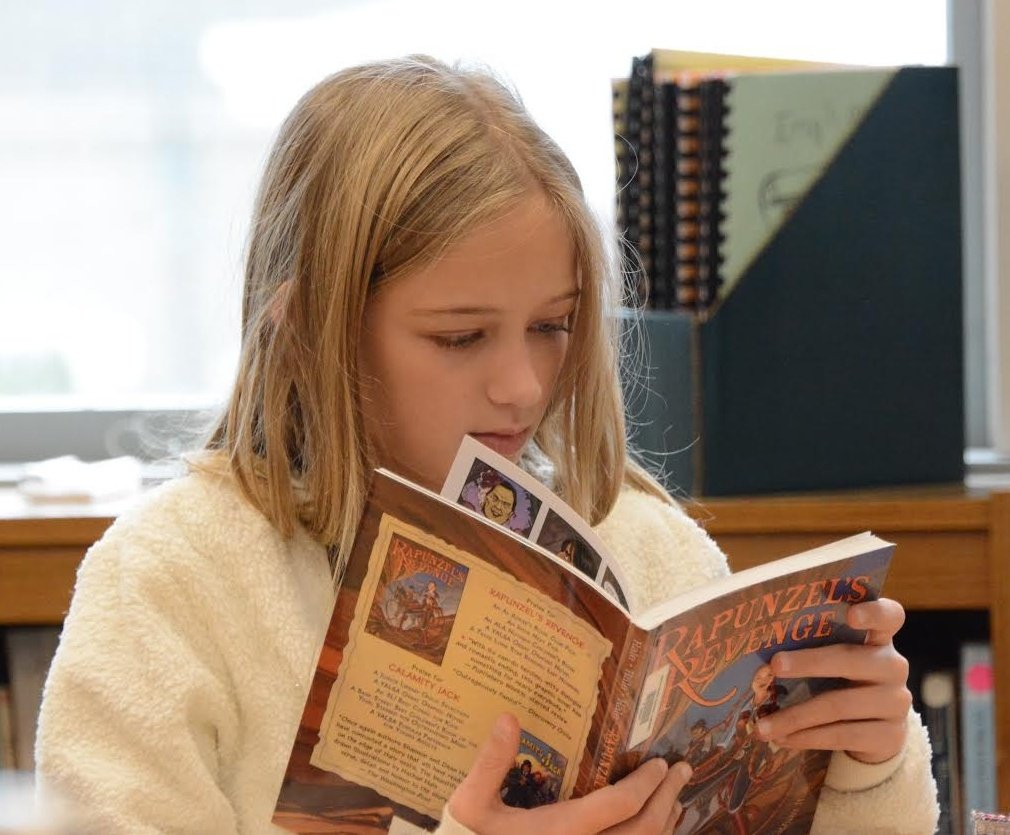Reading: There Are No Rules
 I didn’t read when I was a child.
I didn’t read when I was a child.
This is a strange thing for a librarian and former English teacher to admit. I hid this fact for years, ashamed, but becoming a librarian helped me understand it.
Reading is an act of many parts – a desire to consume information or story; the physical act of eye movements; concentration, recognition, decoding – and as a society we attach not-so-subtle judgements to how we perform these acts. Many children struggle with reading, and they respond to the judgements without being able to parse the act of reading and figure out why there is no joy in it for them. This is where librarians (parents, teachers, big siblings too) need to don our super-hero capes and step in.
Years ago, I had an encounter with a colleague which helped me understand my son as a reader. Jim, a math specialist whose office was at the back of the elementary library in which I taught, swore he was not a reader. “Don’t try to get me interested in any books,” he chided me regularly. But Jim read the newspaper daily, subscribed to multiple magazines, and loved atlases. I kept one open on the counter, and he stopped almost every time he walked through the library to turn the page and read. In fact, Jim was an avid reader; it’s just that he consumed non-fiction. My son, Ben, was 9 at the time and had no interest in fiction. Like many kids, he preferred informational books, but that wasn’t what I offered him until my encounter with Jim.
We also raise our children with the myth that you must finish one book before you start another. As a child, books I did not enjoy languished on my bedside table while I found other entertainment. I did all sorts of fascinating things while I avoided books I did not like, in part because no one told me that if the characters were unappealing, the dialogue unbelievable, the plot too slow or confusing that I didn’t have to keep reading the book. Once I started a novel I thought I was wedded to it until I got to the very last page. Some of the most empowering advice we can give children about reading is that – with the exception of books assigned for classes – if you don’t like a book, you don’t have to finish it. The publishing industry for children is flourishing; options abound for readers with different tastes in format, topic, pace. Kids will read more independently and happily when they find a book they want to read, so encourage them to sample.
That said, there are some kids who just don’t like the long format of a book. Is this really an argument you need to have with your child? Not as often as you might think. Developing reading fluency has a lot to do with practicing the acts of reading (this is where developing the physical skill of reading ties in) and expanding the building blocks of reading comprehension (like building vocabulary and word recognition). We find words in all sorts of formats other than books: try magazines, the newspaper, even Wikipedia. The plethora of magazines available – from Ladybug (aimed at 3 to 6 year olds) to Kids Discover to Archaeology Today and Sports Illustrated – means there is something to interest almost every child.
As a parent, I was lucky. My children were both introverted enough that they escaped to books when there was too much commotion around them. They learned this habit from their father, whose family sat and read together every evening before dinner. This was not the case in my household as a child, and it was not until my children were nearly finished with high school that I discovered how powerfully 15 minutes of reading could change how I felt about my day. Try it. Have your kids try it. Reading is wonderful when it is all-consuming and we can tuck ourselves into a book to disappear for a day, but most days we won’t have time or inclination for that. See what 15 minutes can do for your kids – and for you.



